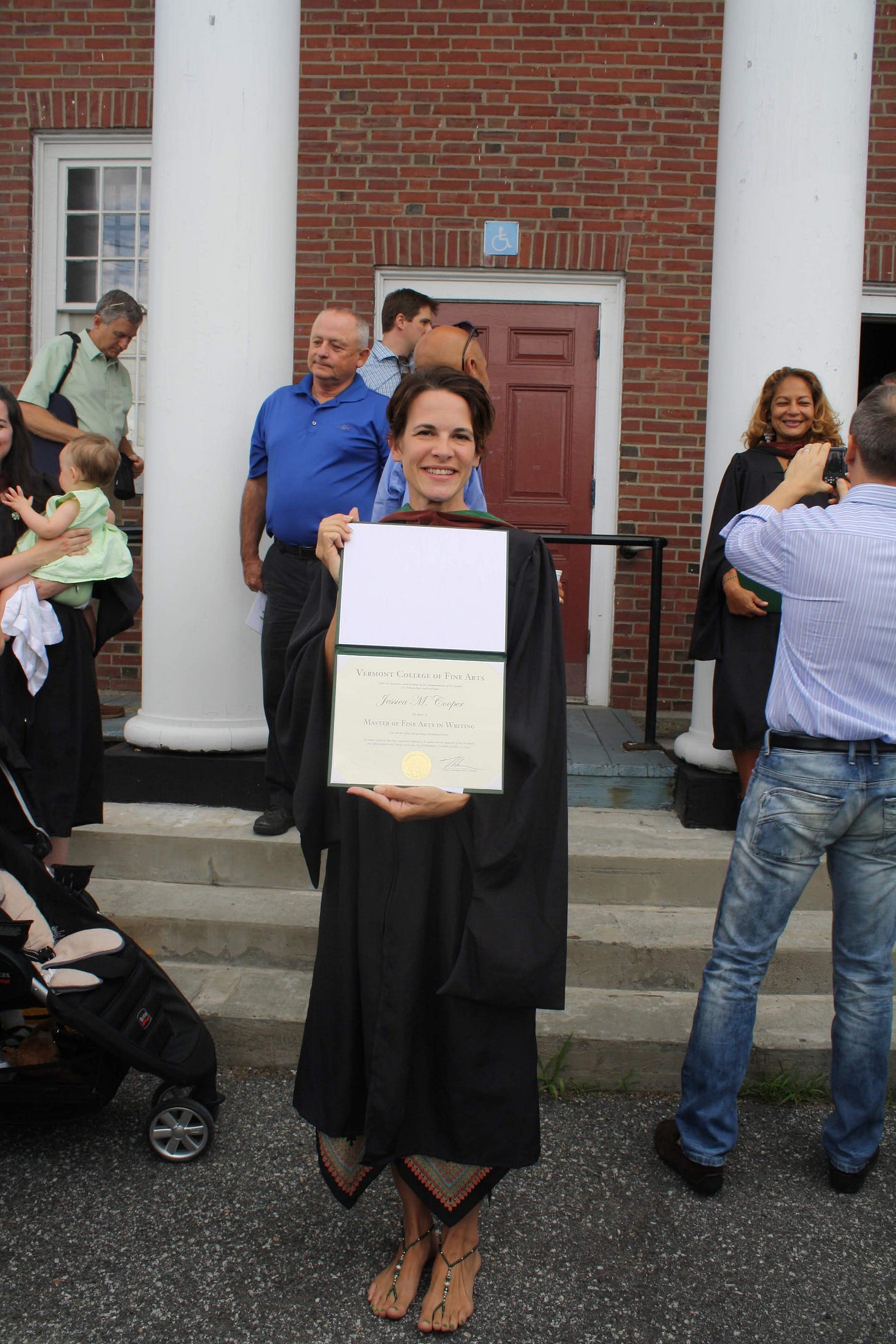They say “write like everyone you know is dead”.
“They” is attributed to several people when you google that quote, and I’m sure someone said it first, but now everyone says it. Another iteration is “Write like you’re dying.” That one is from Annie Dillard. She goes on to say “write as though your audience is terminal.”
Shesh, writers can be dark.
But it is a freeing way to approach the page, and the only way to be authentic and unafraid that whatever you write will end up offending the people you write about. When I was a little girl, I wrote in my locked diaries and eventual spiral bound notebooks with zero fear of them ever being read. I wrote as though everyone was dead, and in the angst of adolescence often felt like I was dying. The only person to breach my privacy was my younger sister and I had no idea she’d done it until we were older and she was no longer afraid of my wrath to admit her trespassing. My parents didn’t seem to care–my father had no idea, probably still doesn’t, that I’ve been writing for so long some of my earliest diary entries are in crayon. And my mother maybe knew, but being a writer herself, at least in her youth, she would have respected that my journals were mine alone, if she was even aware I had them. Neither were very “hands on” parents. But that’s not a complaint–it’s one of the reasons I was able to become a writer. They let me live a curious and independent childhood and so I did.
In my journaling, it’s never occurred to me to write in any other way than from that philosophy. But most of my professional writing, save for a few pieces, to this point has been for kids, and there’s been no real reason to have to employ that advice to that work. However, all these years of journaling have finally coalesced and I’ve completed a memoir that tackles the question “How do you walk into a future you don’t want”? It’s about my husband and my journey the last year and a half with cancer, and our love story, primarily, but also dives into much of my past as a personal reckoning also took place during this cancer journey. When your partner-in-all-things is laid out, it leaves one with a lot of time for thinking. So an entire book was born and it’s layered. And everyone is very much alive.
Did I write it like everyone was dead? I think so. But will I revise/edit as such? Or am I going to start censoring myself, as I can already feel the uncomfortable tug of “What will X,Y,Z think?” The inner critic is stronger than normal with this particular piece. As is the imposter syndrome: Why would you even try to have this published? Who do you think you are?
Who do I think I am?
I actually talk about that in my memoir as well. I grew up with that voice in my head, felt it the most when I was in high school, and it held me back for years into my early thirties. Who did I think I was…wanting to go to college across the country, wanting to major in theater, wanting to be on TV, wanting to leave my husband, wanting to go back to school, wanting to be an author…wanting, wanting, wanting. So many of my choices were finally made years, if not decades, after the first want because I always heard who did I think I was in my background soundtrack. Some of my wants were left behind to rot because the voice was too loud to drown out.
Not everyone, but many reach a place with their writing when the need to express and the confidence to express publicly collide. It’s a tough spot because–that damn voice. And yet, a lot of us press through it. I have so many talented friends who share their lives here on Substack, openly, vulnerably. I have, to a certain point, through here, and other blogs ever since I was a young mom. I think I can speak for others, but I know for myself when someone responds with how something resonated with them, that’s the ultimate goal of my work. If someone feels seen, or sees me, or has their experiences put into words they didn’t have, or they grow more empathy for a situation they don’t know or simply enjoys the story being told…all these things are why we read, and why we write.
It’s all built up to this: Who do I think I am? A writer who believes someone out there will read this memoir and be seen. Someone very much like me who struggled to express herself and trust in herself for a very long time. It’s for that person that I wrote it. And the only way she’s going to read it is if I (try to) publish it.
See? That voice is still there. Press on anyway.




